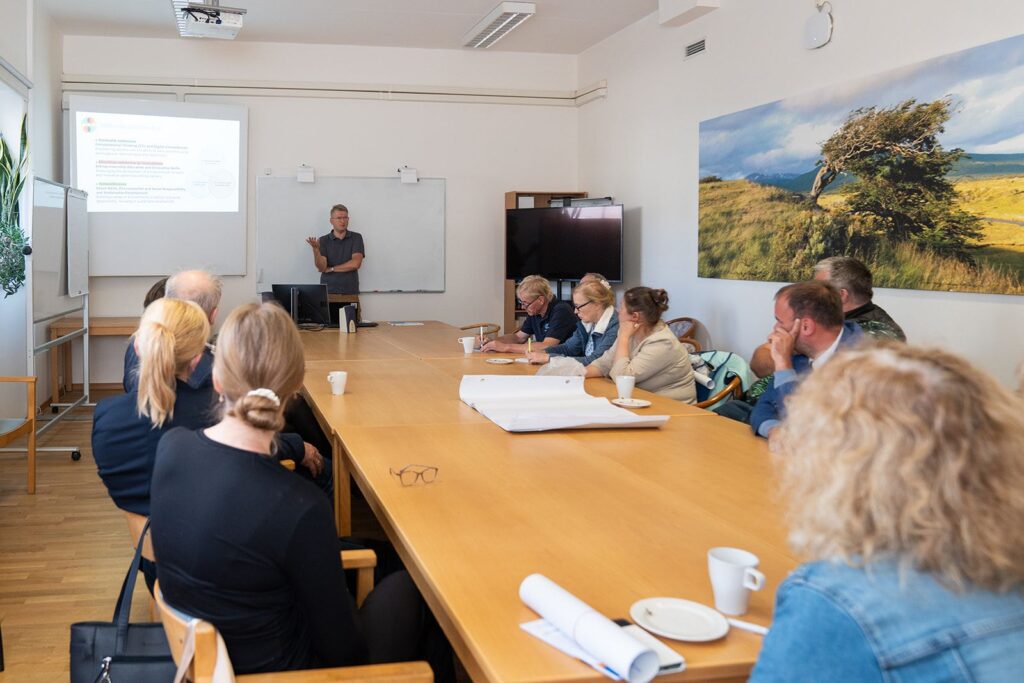Our journey with co-creation workshops was nothing short of transformative. When we first embarked on this initiative, the vision was to bridge diverse perspectives and empower participants to shape innovative, inclusive solutions. Now, as our workshops materialized, we are thrilled to share some key learnings, the exciting outcomes, and the shifts that shaped our approach.
Evolution of the Workshops
Initially, our workshops were designed as structured sessions focusing on specific themes, such as sustainability, computational thinking, and fostering digital competences. Over time, these sessions evolved to embrace more flexibility and participant-driven agendas. By integrating iterative feedback loops, the workshops became dynamic spaces where participants felt empowered to steer discussions and co-design outcomes.
One major achievement was the inclusion of a greater diversity of stakeholders. From educators and industry experts to students and policymakers, the workshops reflected a richer Quadruple Helix collaboration model. This inclusivity not only deepened discussions but also ensured that the solutions we co-created were more robust and multifaceted.
Workshops Calendar and Audience Profile
Throughout nine workshops, 102 participants from various stakeholder groups were engaged. These groups included Higher Education Institutions (HEIs), Vocational Education and Training (VET) providers, the public sector, the private sector, and multipliers such as business development organisations and non-profits.
The workshops varied in format—some were held online, while others were conducted onsite—and were tailored to the language and needs of the participants. They were led by partners across different countries, ensuring regional representation and local relevance.
For example, in Austria, a fully online workshop conducted in German attracted 16 participants, primarily from HEIs and the public sector. In contrast, the workshop in Estonia was onsite and focused on engaging HEIs, with 14 participants contributing rich insights into local needs and challenges. In Spain, an onsite session brought together private sector representatives and multipliers to discuss scalable solutions for integrating digital competences into educational frameworks.
Across all workshops, stakeholder diversity ensured a robust exchange of ideas. For instance, a workshop led by GI in Germany blended onsite and online formats, attracting 13 participants from HEIs, private companies, and local municipalities. Meanwhile, Ireland’s online session emphasized connecting multipliers and private-sector stakeholders, demonstrating the flexibility of the co-creation approach.
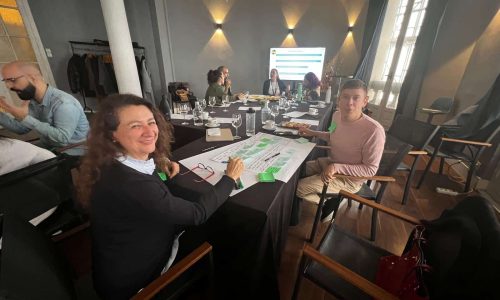
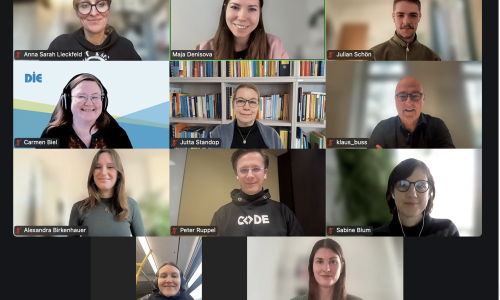
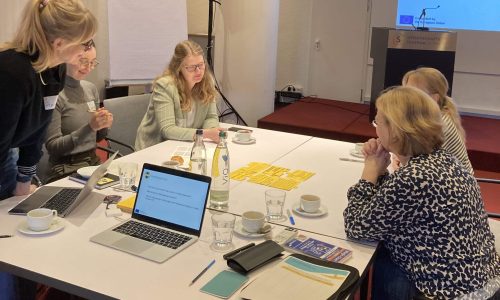
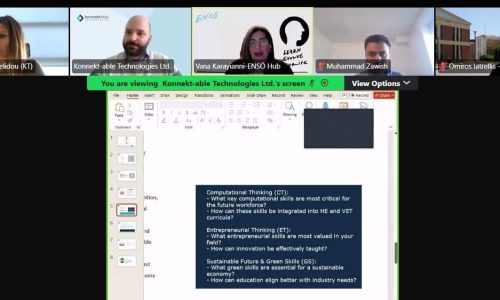
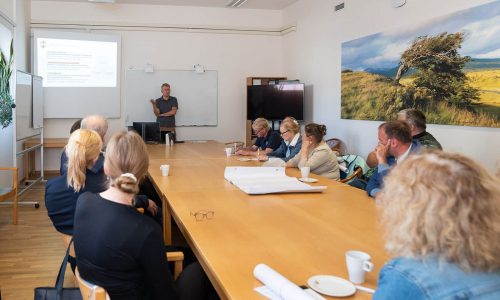
Key Learnings
-
- The Power of Facilitation: Effective facilitation was pivotal. Facilitators who actively listened, synthesized contributions, and guided discussions enabled more organic and meaningful dialogues.
-
- Breaking Silos: Encouraging participants to step out of their professional silos was a game changer. For example, pairing educators with entrepreneurs sparked innovative ideas that might not have emerged otherwise.
-
- Iterative Prototyping: By incorporating prototyping sessions within the workshops, participants visualized and refined their ideas in real-time. This hands-on approach increased engagement and expedited the transition from ideation to actionable strategies.
-
- Digital Tools as Enablers: Leveraging collaborative platforms and tools enhanced accessibility and inclusivity, especially for remote participants. Tools like digital whiteboards and shared document spaces allowed for real-time input and collaboration.
Insights into Challenges and Opportunities
Discussions during the workshops revealed key insights into systemic challenges, such as inequities in access to digital education tools and barriers to interdisciplinary teaching. These findings are now shaping our broader strategy.
One of the primary challenges in the development and assessment of competences is bridging the gap between academic programs and the practical needs of the workforce. This disconnect often leaves graduates underprepared for real-world demands. A lack of resources for teaching critical skills such as computational thinking and sustainability further limits the ability of education systems to prepare learners effectively.
Additionally, inequitable access to upskilling and professional development opportunities exacerbates inequalities, preventing many individuals from reaching their potential. Bureaucratic hurdles, such as rigid administrative systems, also slow the adoption of competence-based assessment frameworks.
To overcome these barriers, ongoing support for educators and students is essential. Educators require tailored training, particularly in sustainability and multidisciplinary teaching, to ensure they can deliver relevant and impactful education. At the same time, inclusive frameworks must be developed to provide equitable access to learning opportunities for all, particularly underrepresented groups.
Strategically, fostering cross-sector collaboration through models like the Quadruple Helix can align educational objectives with real-world needs by integrating insights from academia, industry, government, and civil society. Mentoring networks and peer support groups are also valuable for helping learners develop both technical and interpersonal skills. Additionally, prioritizing multidisciplinary projects can encourage holistic problem-solving and prepare learners to address complex challenges.
Importance for the Vision of ComeThinkAgain
The co-creation workshops have been instrumental in advancing the vision of the ComeThinkAgain project. By bringing together a diverse range of stakeholders, these workshops have not only fostered innovative thinking but also ensured that the project’s outputs align with real-world needs. The collaborative frameworks developed during these sessions directly support the project’s goals of promoting computational thinking, sustainability, and inclusive education.
The workshops have also had a tangible impact on the project’s progress. They have facilitated the identification of key challenges and opportunities, catalyzed the creation of pilot projects, and strengthened cross-sector partnerships. These outcomes are critical for ensuring the long-term success and sustainability of the project.
Looking Ahead
The evolution of our co-creation workshops is ongoing. Future sessions will focus on deepening cross-sectoral partnerships and exploring emerging themes like AI ethics and adaptive learning technologies. We’re also planning to scale successful pilot projects and expand the reach of our frameworks.
We’re immensely grateful to all participants for their openness, creativity, and dedication. Together, we’re not just imagining a better future—we’re building it.
